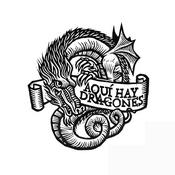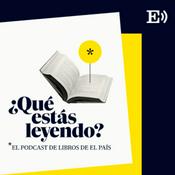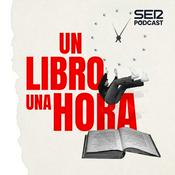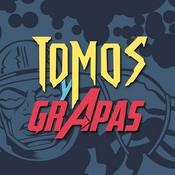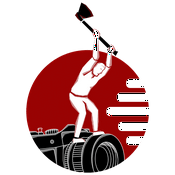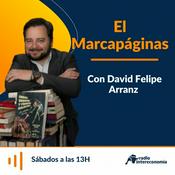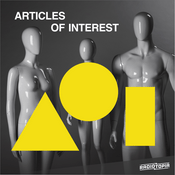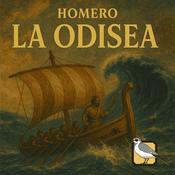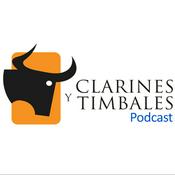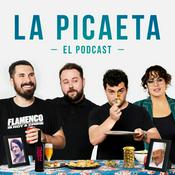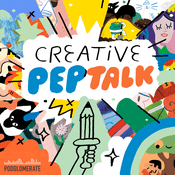56 episodios
- How can AI transform the way we work and innovate? In this special episode of The Paint and Pipette Podcast, we team up with Matt Abrahams, a lecturer of Strategic Communication at Stanford Graduate School of Business and host of the Think Fast, Talk Smart podcast. We dive into the world of generative AI in the sports industry, focusing on the groundbreaking work being done by the Portland Trail Blazers. Joining us are David Long, VP of Digital Innovation for The Portland Trail Blazers @ the Rose Quarter, and Christa Stout, their Chief Strategy and Innovation Officer. Together, we explore how AI is driving improvements across three key areas: revenue generation, customer experience, and operational efficiency. Christa and David share how they’ve empowered employees to experiment with AI, encouraging creativity and innovation across their organization. From automating routine tasks like customer feedback analysis to using AI for creative problem-solving, the Trail Blazers have created a supportive environment where AI is seen as a co-worker rather than a replacement. We also examine the importance of active leadership in normalizing AI adoption, ethical considerations, and best practices for helping teams embrace this technology. Whether you’re curious about AI’s potential in sports or looking for ways to introduce AI in your own business, this episode offers practical insights and real-world examples!
Key Points From This Episode:
Introducing Christa Stout and David Long from the Portland Trail Blazers.
Details on Jeremy’s new podcast, Beyond the Prompt.
An overview of the NBA team, the Portland Trail Blazers.
Christa and David’s roles within the organization.
Three key areas where they are using AI to improve: revenue generation, customer experience, and operational efficiency.
Jeremy’s collaboration with Christa and David.
How they created a space for employees to experiment and share how they use AI.
The benefits of framing AI as a co-worker for your team internally.
How AI can empower workers: the impressive demo that one employee built using AI.
Key takeaways for helping workers learn to use generative AI more effectively.
Effective strategies for encouraging people who are skeptical about generative AI.
Their approach to ethics, rules, standards, and instituting guardrails.
Creative uses of AI from production to broadcasting to support the Portland Trail Blazers.
How to vote for Think Fast, Talk Smart to win the Signal Award.
Best practices and advice for anyone wanting to innovate with AI.
Links Mentioned in Today’s Episode:
Matt Abrahams on LinkedIn
Christa Stout on LinkedIn
David Long on LinkedIn
Portland Trailblazers
Rose Quarter
Think Fast Talk Smart
Episode 134: Leveraging AI to unlock new levels of creativity and communication innovation
LinkedIn Live: Think Fast Talk Smart Explores GenAI @ Portland Trail Blazers
Cast your vote for the Signal Awards
Beyond the Prompt
Jeremy Utley
Jeremy Utley Email
Jeremy Utle - Have you ever wondered how traditional leaders can be motivated to support creativity in the workplace? What is the secret to fostering creativity and driving innovation? Today, on the podcast, we welcome Teresa Amabile to help us explore the crucial role that managers play in shaping the inner work lives of their employees through the lens of her book, The Progress Principle. Teresa Amabile is a distinguished scholar and researcher in organizational behavior. She is renowned for her groundbreaking work on creativity, motivation, and the work environment. Joining as a co-host is Diego Rodriguez, a board member at LendingTree, whose expertise extends to pioneering tough tech, fintech, and shaping the future of transportation. In our conversation, we unpack her interest in ‘garden variety’ creativity, why reward incentives are not good motivation tools, and what kills creativity. Discover the difference between intrinsic and extrinsic motivators, typical progress inhibitors, and how failure can lead to innovative breakthroughs. We discuss the power of small wins, what extrinsic motivators are necessary, the role of AI in creativity, why the meaningfulness of work is essential for productivity, and much more. Join us as we uncover Teresa’s progressive unifying theory of design thinking and how it applies to the culture of creativity for organizations. Tune in now!
Key Points From This Episode:
Her shift in focus from studying exceptional individuals to ordinary people's creativity.
Learn about the impact of social environments on creativity.
How companies, like IDEO and Hewlett Packard, foster a culture of creativity.
Teresa unpacks The Progress Principle concept and how it applies to organizations.
Discover the value of “intrinsic motivation” and the steps to creating it.
Effective strategies leaders can leverage to overcome a company crisis.
Hear how a major failure can lead to an innovative breakthrough.
Potential of AI to gain deeper insights into motivation and creativity.
Ways traditional leaders can be intrinsically motivated to drive creativity.
Explore the concept of AI augmenting human intelligence and creativity.
Our guests share advice and their final takeaways for listeners.
Links Mentioned in Today’s Episode:
Teresa Amabile
Teresa Amabile on LinkedIn
The Progress Principle
Diego Rodriguez on LinkedIn
LendingTree
IDEO
Hewlett Packard
‘Creativity, Artificial Intelligence, and a World of Surprises’
Retiring: Creating a Life That Works for You
Jeremy Utley
Jeremy Utley Email
Jeremy Utley on X
Jeremy Utley on LinkedIn - To what extent are our inner lives shaped by the stories we tell ourselves? And how can we learn to see the world as it truly is? Today on the podcast we have Diana Chapman, Co-Founder of The Conscious Leadership Group, an organization that helps leaders and their teams build trust and create conscious cultures through coaching, training, and more. She is also a facilitator, CEO coach, speaker, and co-author of The 15 Commitments of Conscious Leadership, a book that distills decades of accumulated knowledge from working with CEOs and other leaders. In today’s conversation with Diana, we delve into the complexities of what it means to accept our inner emotions, how we can learn to understand our reactivity to other people, and how these skills can help us foster environments that preserve psychological safety without sacrificing candor. Tuning you’ll learn about the profound lessons Diana learned at The Hendricks Institute, the impact they had on her life, and how she and her team help organizations foster conscious leadership and collaboration. We also delve into the importance of play, why the enneagram is such a useful tool for leaders, and what it means to operate in your Zone of Genius. Tune in to hear all of Diana’s insights on life, leadership, and learning how to see the world as it truly is!
Key Points From This Episode:
Get to know today’s guest, Diana Chapman, and how she discovered the Hendricks Institute.
The tools Diana acquired there and how they changed her life.
Understanding the radical concept that ‘I am the creator of my own suffering’.
Reactivity, acceptance, and how to change your behavior (and the outcomes).
Unpacking the concept of radical responsibility.
Learning to get comfortable with all the emotions and sensations in your body.
The intelligence underlying our emotions and what they can teach us.
How to preserve psychological safety without sacrificing candor.
Diana’s approach to creating an environment where candor can propel innovation.
The practices she and her team give organizations to foster these environments.
Diana’s insights on the importance of play.
How to assess whether there is enough play in your life.
Advice on bringing more play into your life.
Why the enneagram is such a meaningful tool for leaders.
Learning to embrace the gifts and shadow side of your enneagram type.
How you can use the enneagram as a parent to deepen your connection with your kids.
The Zone of Genius: what it is, why it’s important, and how can discover it.
Links Mentioned in Today’s Episode:
Diana Chapman on LinkedIn
Diana Chapman on X
The Conscious Leadership Group
The 15 Commitments of Conscious Leadership
15 Commitments of Conscious Leadership: A New Paradigm for Sustainable Success
The Hendricks Institute
Bernard Roth
Brendan Boyle
Jennifer Brandy Wallace
Jeremy Utley
Jeremy Utley Email
Jeremy Utley on X
Jeremy Utley on LinkedIn - Creativity is not an exact science and ideas often strike when we least expect them. But what if we could curate an environment ideal for sparking creativity? Today we are joined by Josh Ruff and Marcus Hollinger from Stoked to discuss their incredible new workshop, Ideascience. Tuning in, you’ll hear all about how music inspired their Ideascience creation, why they create a space for checking in with their team at the beginning of every meeting, how task switching overcomes cognitive fixation, and how meditation has improved ideas in brainstorms. They then go on to tell us about what Ideascience actually entails before walking us through the process of the workshop. Our guests even delve into some neuroscience facts and how they relate to creativity. Finally, we explore the importance of being goofy and allowing yourself to play in any creative process. You don’t want to miss this one so press play now!
Key Points From This Episode:
Introducing today’s guests, Josh Ruff and Marcus Hollinger.
They tell us about the product that they are launching, Ideascience.
The inspiration for this incredible program and the goal of Ideascience.
How music is linked to Ideascience and the importance of ‘getting real’ with your partners.
Why they like to ‘protect’ the first 15 minutes of every meeting to check in with everyone.
How our guests continue to make downtime to have space for creativity a priority.
Testing the theory that task switching overcomes cognitive fixation.
Our guests explain their art walk section of these studies.
How meditation improved the quality and quantity of ideas in brainstorms.
They tell us about the Ideascience Council.
What Ideascience actually is and what the launch experience will entail.
How theta brainwave activity contributes to creativity and how that’s part of Ideascience.
They walk us through the steps of the Ideascience workshop.
The importance of the sequence of events of the workshop.
How their nine-by-nine method intersects with Ideascience.
Going from concept to habit and the rewards that motivate people.
The importance of play in creativity to lighten the load of hard work.
Links Mentioned in Today’s Episode:
Joshua Ruff on LinkedIn
Joshua Ruff on Instagram
Marcus Hollinger on LinkedIn
Marcus Hollinger on Instagram
Marcus Hollinger on Threads
Ideascience
Stoked
Stoked on LinkedIn
Stoked on Instagram
Jeremy Utley
Jeremy Utley Email
Jeremy Utley on X
Jeremy Utley on LinkedIn - Today, we join forces with Henrik Werdelin to launch Beyond The Prompt, a podcast that explores how companies leverage AI to streamline operations and better serve their customers. Henrik is a remarkable entrepreneur and one of the visionary founders of Prehype, a community of entrepreneurial individuals dedicated to assisting one another and collaborating with companies to foster innovation and create innovative ventures. In this episode, we sit down with Greg Shove, CEO of next-generation business upskilling platform Section, to discuss his experience of leveraging AI in the context of optimizing, accelerating, and transforming various aspects of Section's operations. Employing its exclusive sprint format, Section collaborates with renowned business school professors to provide top-notch business education that translates into tangible real-world results. In this conversation, Greg unpacks the adoption of AI in the workplace, the challenges and opportunities it presents, and specific use cases within Section. Tuning in, you’ll discover the importance of trust and transparency in AI adoption, the everyday tasks that AI can help with, and a framework for AI integration. You’ll also gain insight into AI’s role in education, the reinvention of education delivery, common misconceptions around AI, and much more! For a valuable look at the pragmatic considerations, hurdles, and possibilities associated with integrating AI into everyday business and educational contexts, listen in now!
Key Points From This Episode:
Greg's role at Section and his motivation for pivoting to online learning and AI.
How the pandemic was a catalyst and a false signal for Section.
The pivotal moment when Greg realized the power of AI.
Aspects of leadership and trust needed for AI adoption.
Three modes for approaching AI: optimize, accelerate, and transform.
AI’s potential in high-value tasks and decision-making processes
Challenges in prompting AI effectively and learning from your mistakes.
Examples of tasks that are suitable and not suitable for AI.
Strategies for experimenting with and adopting AI into your workflow.
Common misconceptions and pitfalls of using AI.
The role of AI in education and the potential disruptions it may cause.
Why a dynamic AI strategy, experimentation, and knowledge of advancements are critical.
Greg’s thoughts on the future trends and potential of AI.
Jeremy and Henrik’s main takeaways from the conversation.
Links Mentioned in Today’s Episode:
Greg Shove
Greg Shove on X
Greg Shove on LinkedIn
Section
Claude
ChatGPT
Bard
Perplexity
Fathom
Superhuman
Whisper
Voice AI
Anthropic
Henrik Werdelin
Henrik Werdelin on X
Prehype
Jeremy Utley
Jeremy Utley Email
Jeremy Utley on X
Jeremy Utley on LinkedIn
Más podcasts de Arte
Podcasts a la moda de Arte
Acerca de Paint & Pipette: The Art & Science of Innovation
Stanford Adjunct Professor Jeremy Utley explores the counter-intuitive tactics that world-class innovators and entrepreneurs employ to break through. He's learned that while innovation is part art (paint) – it's also part science (pipette) – and treats the subject with both the rigor and the wonder that it deserves. Season 1 shined a spotlight on female founders; season 2 celebrated black creators; Season 3 guests include WIRED co-founder Kevin Kelly, Harvard Business School Professor Linda Hill, CEO of Google X Astro Teller, start-up coach Liz Tran, Waze founder Uri Levine, Seth Godin, journalist Jennifer Wallace, Pixar co-founder Ed Catmull, and more.
Sitio web del podcastEscucha Paint & Pipette: The Art & Science of Innovation, Aquí hay dragones y muchos más podcasts de todo el mundo con la aplicación de radio.es

Descarga la app gratuita: radio.es
- Añadir radios y podcasts a favoritos
- Transmisión por Wi-Fi y Bluetooth
- Carplay & Android Auto compatible
- Muchas otras funciones de la app
Descarga la app gratuita: radio.es
- Añadir radios y podcasts a favoritos
- Transmisión por Wi-Fi y Bluetooth
- Carplay & Android Auto compatible
- Muchas otras funciones de la app


Paint & Pipette: The Art & Science of Innovation
Escanea el código,
Descarga la app,
Escucha.
Descarga la app,
Escucha.

